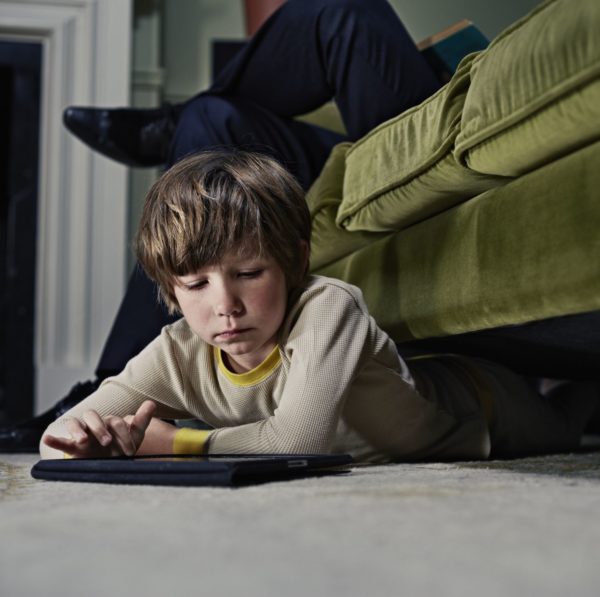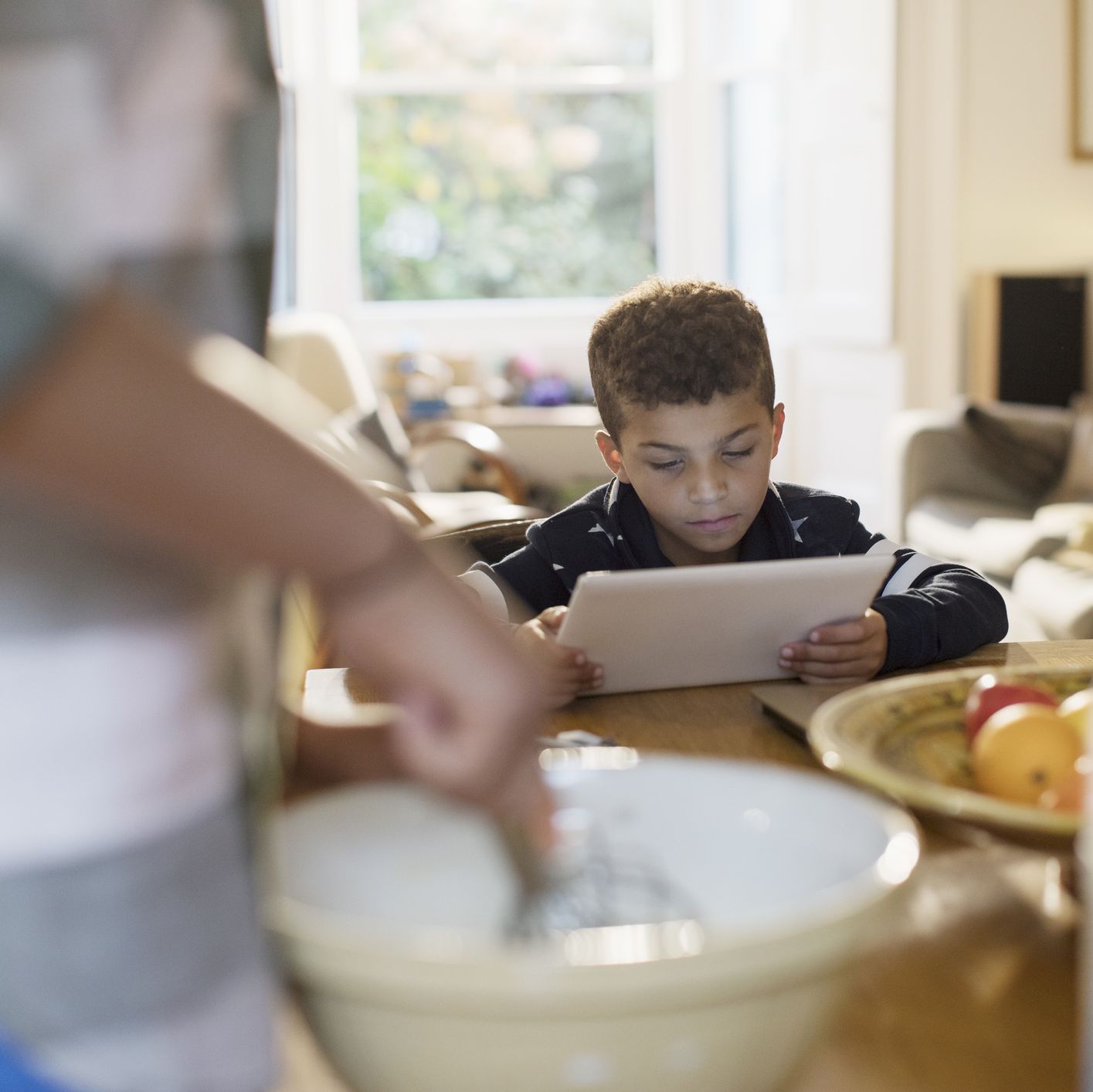

Frank HerholdtGetty Images
When WW, the company formerly known as Weight Watchers, announced the launch of Kurbo by WW, a nutrition and weight loss app for kids as young as 8 years old, the social media firestorm (predictably) started.
Many were along the lines of Anna Sweeney, a certified eating disorders registered dietician, who Tweeted: “I thought that I hated Weight Watchers. I have not hated them as much as I do right now. Making weight loss trendy for children is making the development of eating disorders easier and trendier. I am not here for this.”
Nobody disagrees that childhood obesity is an issue; a little more than 18 percent of kids in the US are obese, according to the CDC. But tackling it with an app targeted to kids? We called nutritionists and childhood obesity experts to get their take.
Their issues with Kurbo:
It promotes the idea of foods as “good” or “bad”
The app uses a stoplight approach in an effort to move kids toward eating more healthy foods, which come up in the app as green, meaning you can eat lots of them. Yellow are “good for you in moderate portions,” and red light “should make you stop and think.” Kids are encouraged to track what they eat—they can see as soon as they type it in what color the food is; some foods become red when portion sizes increase.
“I know they’re trying to say that you don’t have to cut foods out,” says Abby Langer, RD, of Abby Langer Nutrition, who’s concerned about kids learning to categorize foods as good or bad. “When you market a healthy eating program to kids as young as 8, you’d better be sure your messaging is all about healthy eating and not about ‘don’t eat this or that,’” she says.
The idea of kids tracking makes nutritionists shudder
“My understanding is that they’re focusing on other healthy behaviors including stress management and sleep,” says Jenny Favret, LDN, a registered dietitian at Duke Pediatrics Healthy Lifestyles Program. “I think they’re saying the right things, but tracking is a little worrisome for me. Any time we’re tracking anything with kids, we have to be really careful. I’ve been doing this for enough years that when kids become too hyperfocused on what they’re tracking, it can begin to feel like a diet.”
WW says it’s not about weight, but the app doesn’t seem that way
“While the claim is that this is all about health, not weight, the details suggest otherwise,” says David L. Katz, M.D., founder of the True Health Initiative and author of The Truth About Food. “Every ‘success’ story highlighted on the Kurbo site is measured in pounds lost, or BMI reduction. I think WW is wrestling with an existential conflict. They really are, to their very foundations, a weight loss company—everything ever built until now has been about that. They now want to be a wellness company, but that’s a difficult pivot when success to date has always been measured in pounds lost.”
So what does help overweight and obese kids?
- Make healthy eating a family deal. Langer says that “the best way to get your kid to eat healthier or more nourishing food is to do it yourself.” But not obsessively. “I am not sure that Mom or Dad using WW to lose weight, and the kids using Kurbo, is the same as a family learning to eat well, be active, and pursue health together. It’s hard to reconcile everyone interacting with their own app with the vision of ‘family power,’” Dr. Katz says. So while the principle of family is reflected here, I am not sure this is really about family in practice.”
- Don’t put your kid on the scale! “Don’t talk about weight,” says Langer. “It takes only one comment to affect a child’s relationship with food well into adulthood. When you make a big deal about it, it becomes a big deal.” In fact, the American Academy of Pediatrics recommends that parents and families steer clear of weight talk.
- Let hunger, not calories, tell them what to eat. “If you’re not hungry, then I don’t care if you’re eating a green food—you’re eating it for the wrong reason,” says Favret. Better to teach kids to tune into their hunger signals and sate them with nourishing foods than to eat or snack for all the wrong reasons.
- Let kids be kids. “I prefer we get kids away from tracking devices—whether it’s food or activity trackers—and just let kids be kids,” says Chris Mohr, PhD, RD, of Mohr Results. “Play. Eat. Sleep. Have fun. Obsessing over every last morsel we put in our mouth to me seems like it has the potential to move kids further way from what food is intended to do—nurture and fuel our bodies—and further confuse its role as either “good” or “bad.” Food doesn’t have morality; let’s not elevate it as such.”
But maybe all the furor over the app has the benefit of helping you look at how you’re eating, too. To Mohr’s point, how many of us are doing this: “Play. Eat. Sleep. Have fun”? Food for thought.
Marty Munson, currently the health director of Men’s Health, previously served as deputy editor at Dr Oz The Good Life and director of digital content at Shape.
